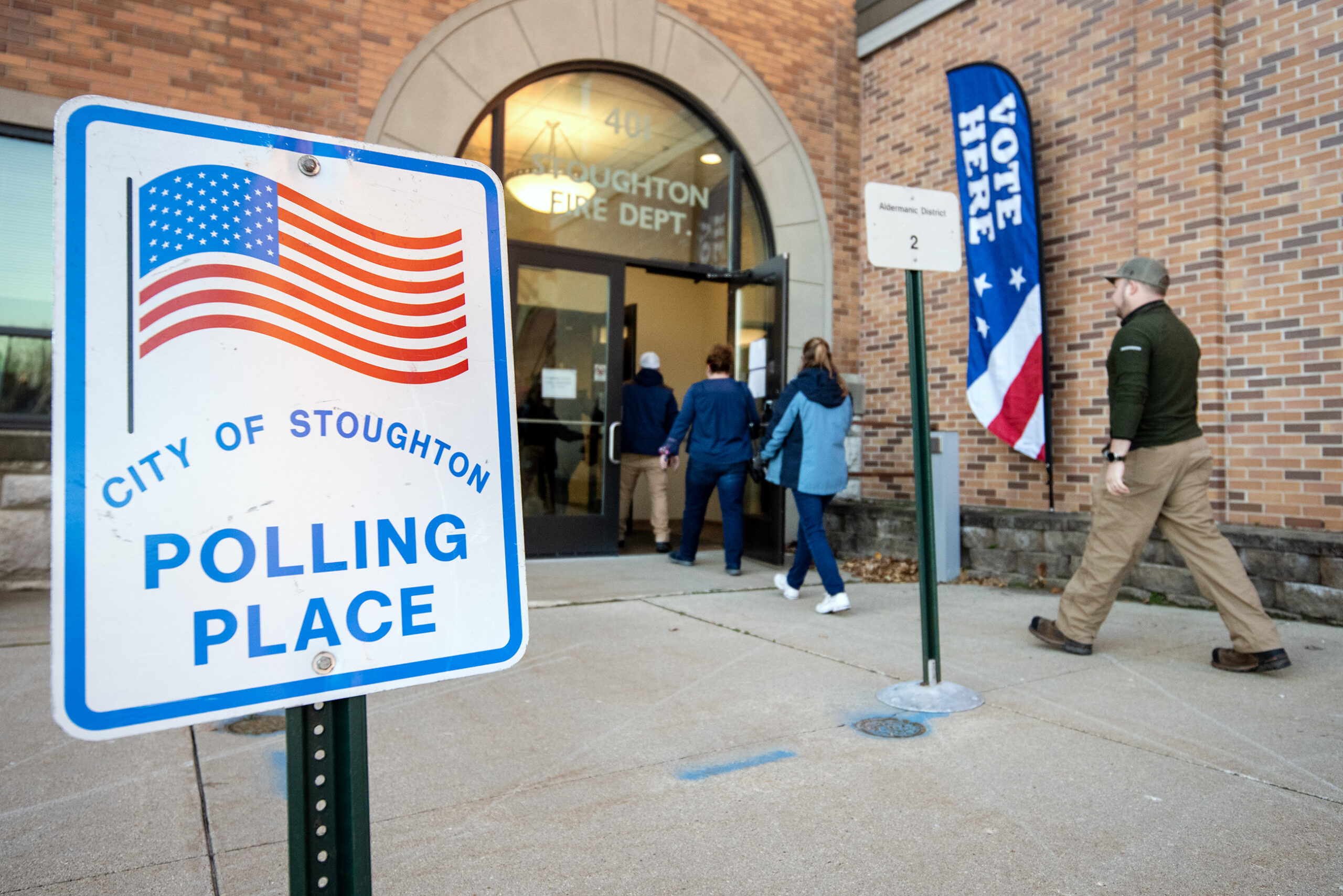A group of Republican lawmakers is advancing a bill that would abolish the Wisconsin Elections Commission, the bipartisan body that oversees how elections are run throughout the state.
The bill backed by Sen. Dan Knodl, R-Germantown, who chairs the Senate’s elections committee, Rep. Ty Bodden, R-Hilbert, and 9 other Assembly Republicans began circulating for co-sponsorship this week.
The move comes less than a year before the November 2024 election in a battleground state where the margin of victory in the last presidential election came down to less than a percentage point.
News with a little more humanity
WPR’s “Wisconsin Today” newsletter keeps you connected to the state you love without feeling overwhelmed. No paywall. No agenda. No corporate filter.
Under the bill, the Elections Commission would have until July to transfer duties to Wisconsin’s secretary of state. But the bill also grants expanded oversight of how elections are run to Wisconsin’s Republican-controlled Legislature. It specifies that the secretary of state cannot take any action on the administration of elections without first getting approval from the committees overseeing elections in both Wisconsin’s Assembly and Senate.
Wisconsin’s Elections Commission was established in 2016 under a law signed by then Republican Gov. Scott Walker, which replaced part of the duties of the now-defunct Government Accountability Board. The six-member Elections Commission is evenly divided between Republicans and Democrats, with some members appointed by the governor and others appointed by legislative leaders.
The WEC distributes guidance to local clerks on how elections should be run. It’s been the focus of litigation over hot-button issues, including the use of ballot drop boxes and other rules involving absentee ballots. The agency also has been a target of false claims from people who deny Democratic President Joe Biden’s victory in 2020.
Meanwhile, some GOP lawmakers have been pushing for the impeachment of Administrator Meagan Wolfe, who runs the Wisconsin Elections Commission. The new bill, it appears, would eliminate her role. It specifies that all employees who are still working for the WEC when the bill takes effect will be transferred to the Secretary of State’s Office — with the exception of the administrator.
During the 2022 gubernatorial primary, multiple Republicans who ran unsuccessfully against Democratic Gov. Tony Evers backed either eliminating or overhauling the elections commission in some way.
At the time, however, Republican legislative leaders said they opposed eliminating the WEC. And, even if the new legislation clears Wisconsin’s GOP-controlled Legislature, Republicans are short of the votes to override a potential veto from Evers.
In a memo attached to a draft bill, its sponsors noted that, unlike in Wisconsin, secretaries of state serve as chief elections officials in 38 other states. It also argues legislative oversight would “create a vital check on power.”
“This consolidation allows for a more direct line of accountability and responsiveness,” the memo says. “The Secretary of State is directly accountable to the voters as an elected official. This proposal will reduce bureaucratic complexities and (ensure) a more transparent electoral process.”
In a statement, Knodl said he introduced the legislation so that the person running Wisconsin’s elections would be directly accountable to voters.
“It is clear the people of Wisconsin do not trust the Elections Commission to run honest and transparent elections,” the statement said. “Even though WEC is the result of Republican legislation, I can honestly say that it has failed in its duties. When a government entity fails at doing its job I believe the public should have a remedy for change. Currently, the public has no such remedy.”
GOP bill would give the Legislature more control over election administration
Wisconsin elects its secretary of state every four years, but the duties of the position are very limited in scope. Secretary of State Sarah Godlewski, who was previously Wisconsin’s treasurer, is serving in the role after being appointed by Evers to replace Democrat Doug La Follette following La Follette’s resignation last spring.
Even though a majority of states allow elected secretaries of state to run elections, attorney Kevin Kennedy says the new Wisconsin bill stands out because of the high degree of legislative approval that would be required.
Kennedy spent decades as Wisconsin’s top elections official, first leading the Wisconsin State Elections Board, then later running the Government Accountability Board that replaced it. Kennedy retired when the GAB was replaced by the WEC.
“The Legislature wants to keep a very, very tight rein on this,” Kennedy said of the bill. “What (lawmakers) are proposing here is, essentially, that they are the second chair for all of the decisions being made by the secretary of state. … The biggest concern is I think that you have a very strong partisan influence, whether it’s the partisan-elected secretary of state or the partisan-controlled Legislature.”
Republican Don Millis chairs the Elections Commission. In an interview with WPR, he said, while the WEC model may not be perfect, he believes it’s better than the model put forth in the new bill.
“We require four votes to get anything done and I think that forces compromises and right now, for the most part, most controversial decisions are reviewed by the courts and I think that’s fair,” Millis said. “Putting this in the hands of partisan statewide office holder is not a good idea.”
Millis said he’s concerned the provisions in the bill requiring legislative checks on the secretary of state will eventually be struck down by Wisconsin’s Supreme Court.
“That would mean that whoever the secretary of state would be would have unfettered reign over the administration of election laws and I just think that’s a bad thing, whether it’s a Republican or a Democrat,” he said.
The proposal comes less than a year before Wisconsin’s presidential election
Assistant Minority Leader Sen. Jeff Smith, D-Brunswick, called the timing of the proposal suspect.
“To make this huge change just months before the presidential election would be absolutely, absolutely crazy,” said Smith, who’s part of the Democratic minority on the Senate’s Committee on Shared Revenue, Elections and Consumer Protection.
Smith says he doubts the provision will become law, since it’s not clear Republicans have the votes to pass it and, if they did, it would be likely be headed for a veto. Instead, Smith characterized the proposal a cynical attempt by Republicans to “rile up their base.”
“(It’s) just like 2020 all over again, casting doubt on the upcoming elections,” he said.
Wisconsin Public Radio, © Copyright 2025, Board of Regents of the University of Wisconsin System and Wisconsin Educational Communications Board.







